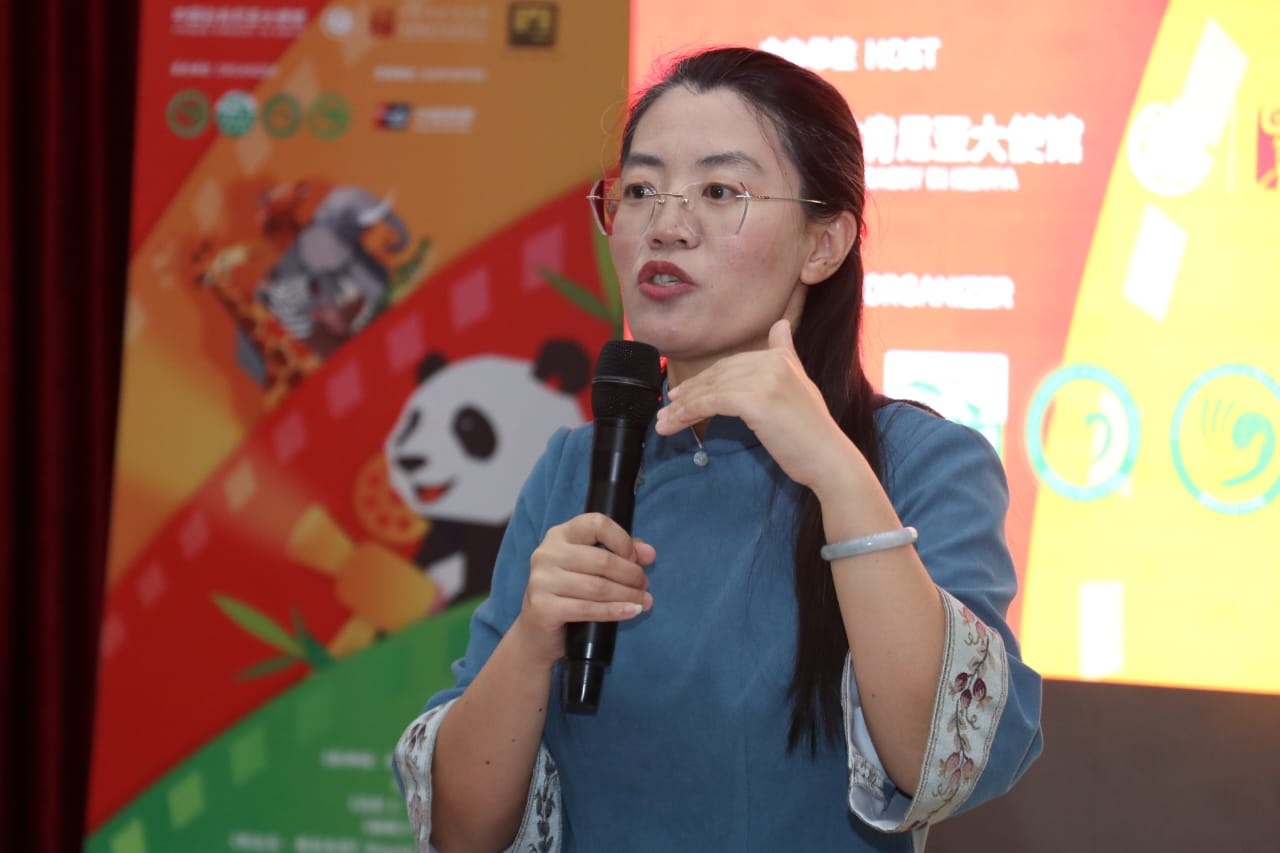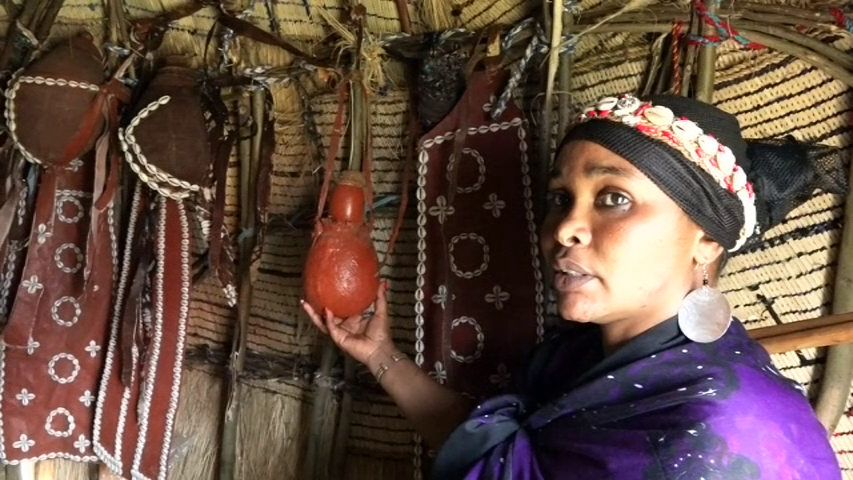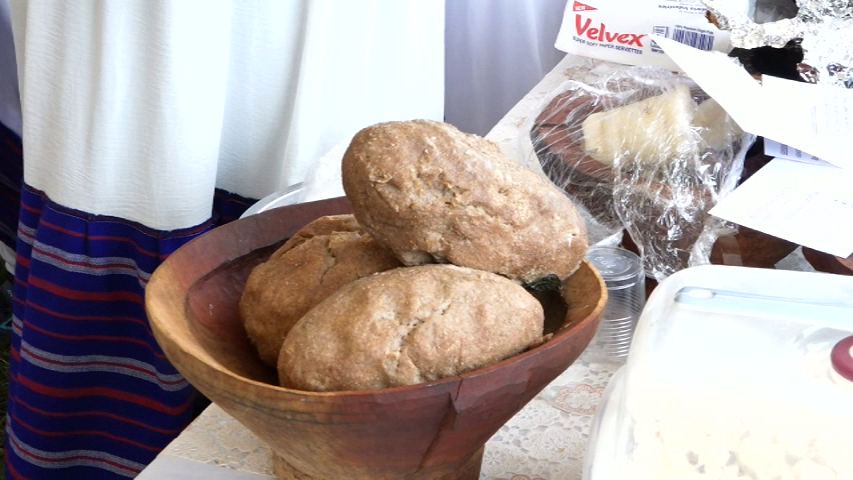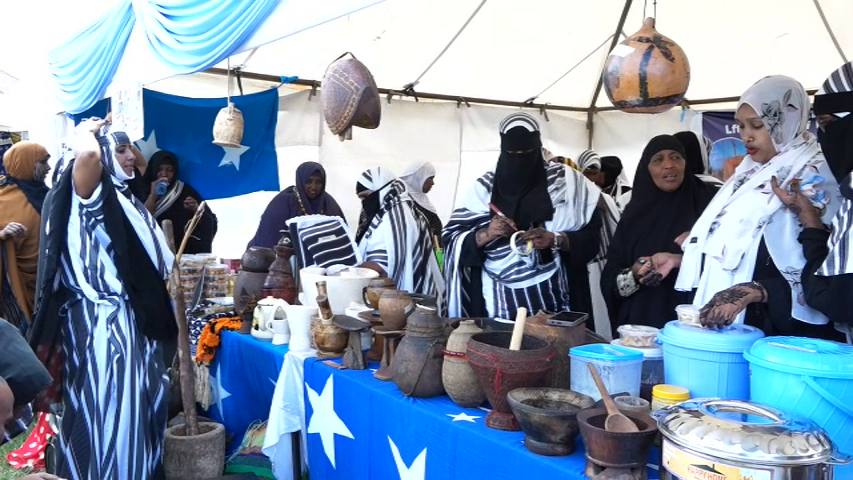
 A woman from the Burji community displays colourful household items used by the community during the Cushitic Cultural Day in Nanyuki town, Laikipia county
A woman from the Burji community displays colourful household items used by the community during the Cushitic Cultural Day in Nanyuki town, Laikipia county
Members of various communities from the Northern part of the country congregated in Nanyuki town to showcase their culture and traditions.
In an event dubbed the Cushitic Cultural Day held in Nanyuki town, Laikipia county, the community members donned cultural attires and prepared traditional food as a way of enhancing unity and integration amongst themselves.
Members of the Swahili, Somali, Borana, Bhurji, Rendille and Samburu communities took turns to explore cultural activities of other communities in the colourful event to learn each other’s cultures.
The festival aims to bridge historic divides among the different communities that is often rooted in competition for resources such as water and pasture.
Former Finance Cabinet Secretary Ukur Yattani, who attended the event, underscored the need for the various communities to ensure they preserve their cultures as they co-exist in peace.
“This event was an opportunity for members of these communities who have been living far from their home areas to celebrate their cultures and promote their co-existence,” he said.
 Ngolicha Ngababu from the Borana community displays traditional decorative items in a hut she built during the Cushitic Cultural Day
Ngolicha Ngababu from the Borana community displays traditional decorative items in a hut she built during the Cushitic Cultural Day
The communities, he noted, typically inhabit areas such as Marsabit, Mandera and Garissa among other Northern Kenya counties.
He hailed the event for making it possible for the participants to celebrate their traditional activities, including cooking, dressing and singing.
“This is a way of passing on our culture to our children for preservation and our message is clear that as we live in Nanyuki town, we have to ensure our traditions are not eroded and live together in peace,” he said.
Yattani lauded women for taking the time to establish traditional huts and prepare food for the festival, calling for similar activities to be held routinely as a way of enhancing integration among the communities and promoting their cultures.
He said Nanyuki town, a metropolitan area inhabited by members of all communities, is a clear example of how Kenyans should peacefully co-exist in all parts of the country.
“Nanyuki town is metropolitan and is even inhabited by a large number of white people. This is what we want to see in our country, a situation where people live together regardless of their colour or sex,” he added.
Ngolicha Ngababu from the Borana community explained how women built huts for their households as men were charged with the role of herding cattle.
 Some of the traditional foods displayed during the Cushitic Cultural Day held in Nanyuki, Laikipia County
Some of the traditional foods displayed during the Cushitic Cultural Day held in Nanyuki, Laikipia CountyNgababu, however, expressed concerns that rising literacy levels have dampened culture as many Kenyans get carried away by modernity.
“Nowadays, only elders focus on cultural matters in many communities and that’s wrong,” she said, as she took visitors through a traditional hut that she constructed with the help of other women for the festival.
The hut had eye-catching traditional items such as gourds hanging on the walls as decorations and other traditional household items.
Ailo from the Bhurji community said unknown to many, members are both farmers and pastoralists.
Ailo said they prepared a variety of traditional foods that the community depended on for nourishment and improved health. “We practice organic farming and our foods are also medicinal.
They are more beneficial to the body if routinely consumed,” she said. Members of the Rendille community also explained that their cultural practices mirror the Jewish culture in many aspects.
 Women display traditional cooking items during the Cushitic Cultural Day held in Nanyuki, Laikipia County.
Women display traditional cooking items during the Cushitic Cultural Day held in Nanyuki, Laikipia County.They said cultural events help their children understand their history and culture and their language, helping to preserve their identity.
For the Swahili community, Jamilla Safiya said they were the first to adopt the Islam religion from Arabs before it spread to other parts of the country.
She displayed various household items used to prepare foods and khanga used by the community for dressing among other items.
“Living in Laikipia county, not many understand our culture. We took advantage of this event to show people our Swahili culture,” she said.
INSTANT ANALYSIS
Members of Swahili, Somali, Borana, Bhurji, Rendille and Samburu communities took turns to explore cultural activities of other communities in the colourful event to learn each other’s cultures. Former Finance Cabinet Secretary Ukur Yattani who attended the event underscored the need for the various community to ensure they preserve their cultures as they co-exist in peace.






![[PHOTOS] Betty Bayo laid to rest in Kiambu](/_next/image?url=https%3A%2F%2Fcdn.radioafrica.digital%2Fimage%2F2025%2F11%2F3b166e2e-d964-4503-8096-6b954dee1bd0.jpg&w=3840&q=100)







